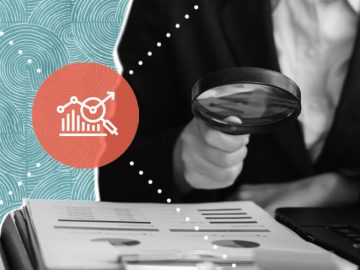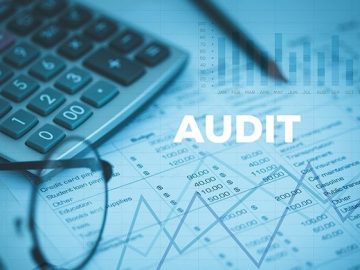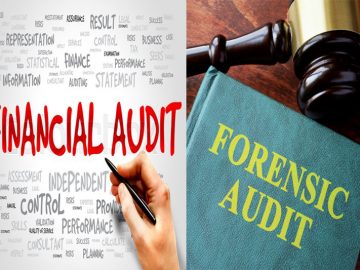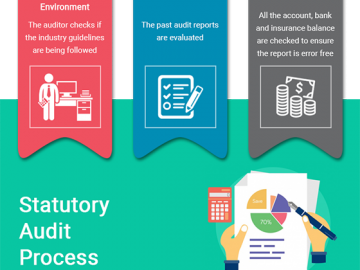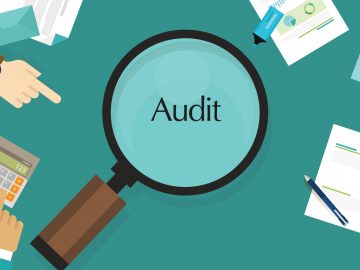
Statutory Audit Programme: The risks associated with Covid-19

While the world was still adapting to the SOPs laid out considering Covid-19 pandemic, the imminent second wave might push most countries into another lockdown. It has pitted the businesses, financial companies, banks, auditors, and regulators against unprecedented challenges as most old-fashioned business models relied on inherent socializing. The global economy came to a standstill as this basic need of socializing was prohibited by Governments to prevent ravaging Covid-19 Pandemic.
Business quickly realized that they had to go back to the drawing board and find innovative ways to survive this perfect storm, as sitting in the comfort of their offices was no longer an option. They had to engage in remote working options for most services they offer to their customers and similarly, also expect a remote solution from their consulting, advisory and audit partners. The new normal of work from home brought additional risk and challenges for services like Statutory Audit.
A statutory audit encompasses an audit or review that is legally required by the regulatory authorities in a particular jurisdiction as a part of a financial compliance regime. It requires a certified professional or associated chartered accountant to review the financial records of the subject company. The intent is ensuring the integrity of the financial records, accounting books and compliance with relevant regulations, economic rules, and bylaws
As per the new UAE Commercial Companies Law, Federal Law No. 2 of 2015, Article 27, Chapter 2, every company shall appoint auditors for auditing their books of accounts by a licensed auditor registered under the Ministry of Economy in the UAE. However not all companies strictly follow this. All Private and Public Limited Companies, registered under the Companies Act, should conduct statutory audits from time to time. Depending upon the size of the company, requirement of public disclosure and underlying economic substance, most Private and Public Limited Companies may end up opting for statutory audits to ensure compliance or avoid legal complications later.
As Covid-19 continues to challenge the business continuity norms, Audit teams may face crises within their own space, as health safety has become the most critical aspect of life. Auditors have to shift focus towards new ways to help their clients come out stronger. The disruptive changes to work patterns are unlikely to be temporary hence there are new tests for audit competencies – being nimble, remote audit work, analyzing data which might not be physically available, monitoring clients’ as well as own cyber controls coupled with overall reduced turnaround time. This additional burden has fallen jointly upon the finance team of organizations and their audit counterparts to prepare financial statements on a timely basis, despite travel restrictions and social distancing. This challenge is also compounded, as the role of auditor is under increased scrutiny by Regulators at these times, on account of public interest obligation.
Organizations continue to demand increased vigilance from their Auditors regarding many issues that may arise because of the COVID-19 crisis. They may also get pulled into new roles that may test their independence – e.g. advisory. However, working closer to the frontline does not mean sacrificing internal audit principles. Maintaining independence related to accountability and reporting and presence of an objective mindset are essential attributes that add most value.
Four of the key risks for auditors in these times remain internal control assurance, heightened fraud risk, non-compliance with laws and regulations, and reasonable accounting estimates considering unprecedented volatility in economic forecasts.
- Internal controls are severely hampered since the pandemic, with complete or partial lockdowns in place, forcing businesses to implement work from home, which brings its own set of challenges
- The remote work option, with most organizations working at BCP levels has heightened chances of potential fraud risk, by many folds.
- Accounting estimates e.g. IFRS 9 ECL or collateral valuation is extremely challenging due to dependence on macro-economic data which is extremely volatile and severely dampened.
- Non-Compliance to rules and regulations as most governments and regulatory bodies continue to work in overdrive to come up with economic support packages and related guidance.
Due to these continued challenges, IAASB has compiled a plethora of resources for guidance of statutory audit as these times necessitate different and enhanced considerations by auditors. It is time for Statutory Auditors to rise and shine while holding the highest standards of independence, objectivity, and knowledge.



